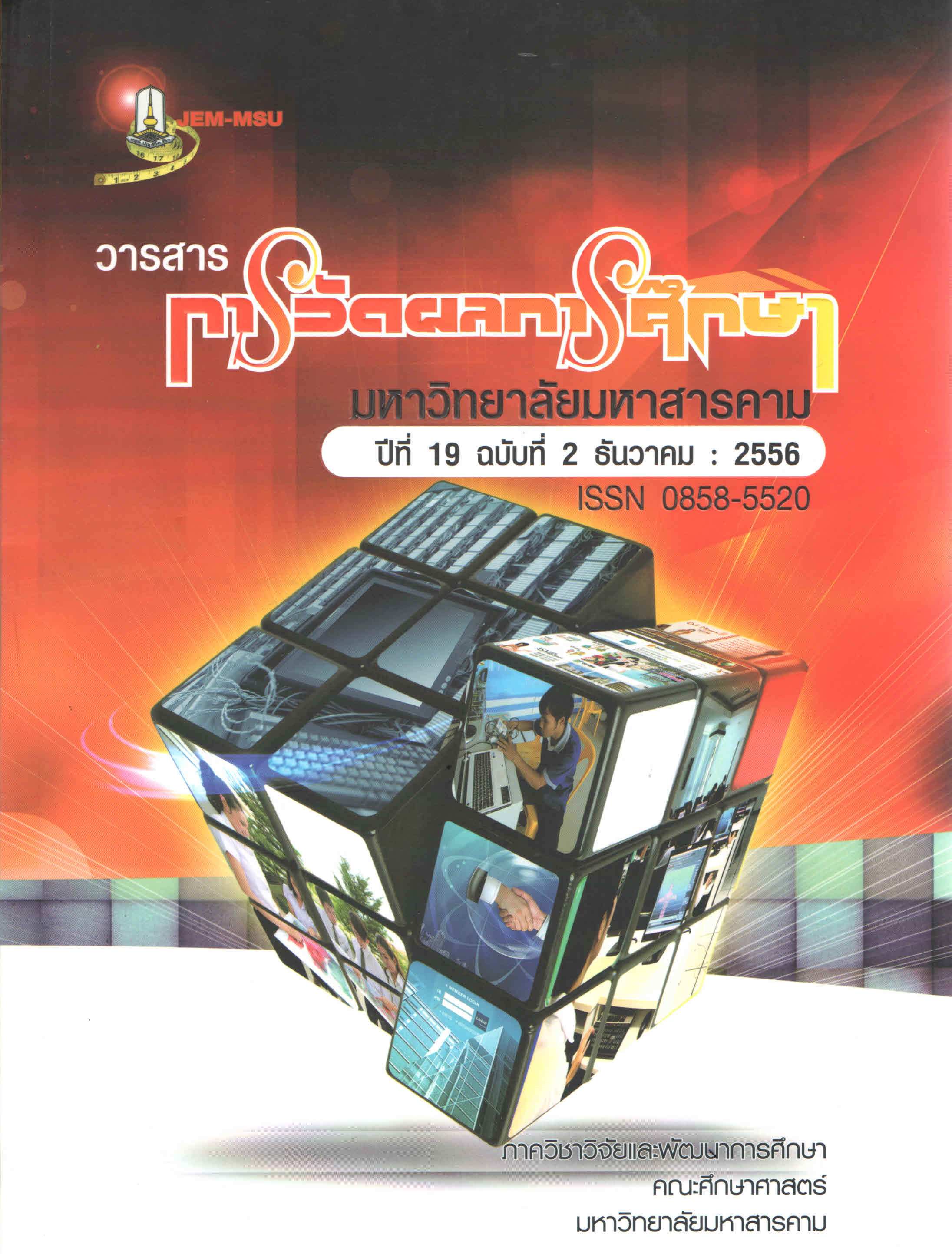The Casual Factors Influencing for Attitude toward Violent Behavior of Matthayomsueksa 5 in the Secondary Educational Service Area Office 21
Main Article Content
Abstract
The purpose of this study was to develop and examine the validity of the causal model
of attitudes toward violent behavior of The Matthayomsueksa 5 in the Secondary Educational
Service Area Office 21. The sample consisted of 1,000 Matthayomsueksa 5 students from the 20
school in the Secondary Educational Service Area Office 21, obtained using the multi-stage random
sampling technique. The tools used for the study were the measurements of attitudes toward
violence behaviour, teacher’s Violence, family violence, peers, media, adversity quotient,
emotional intelligence self esteem self control and attitude to violence which had their reliabilities
at .935, .935, .934, .855, .836, .803, .853, .847 and .830 respectively. Data were analyzed by latent
variable of path analysis of structural equation modeling (SEM).
The results of the study were as follows:
1) The causal model of attitudes toward violent behavior of The Matthayomsueksa 5
in the Secondary Educational Service Area Office 21 was consisted with empirical data regarding
2
χ = 271.23, df =259, χ 2/df = 1.133, p = .288, CFI = 1.00, GFI= .982, AGFI = .968, RMSEA = .007,
RMR = .017 2) The variable directly affecting attitudes toward violence behaviour was self control
and the variables both directly and indirectly affecting attitudes toward violence behavior were
teacher’s Violence, family violence, peers, media, adversity quotient, emotional intelligence and
self esteem. All variables could explain the variance of the attitudes toward violence behavior
at 75.70 percent.
Article Details
The content and information contained in the published article in the Journal of Educational Measurement Mahasarakham University represent the opinions and responsibilities of the authors directly. The editorial board of the journal is not necessarily in agreement with or responsible for any of the content.
The articles, data, content, images, etc. that have been published in the Journal of Educational Measurement Mahasarakham University are copyrighted by the journal. If any individual or organization wishes to reproduce or perform any actions involving the entirety or any part of the content, they must obtain written permission from the Journal of Educational Measurement Mahasarakham University.


